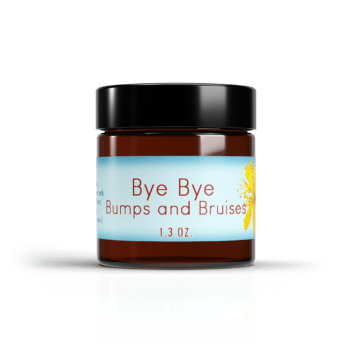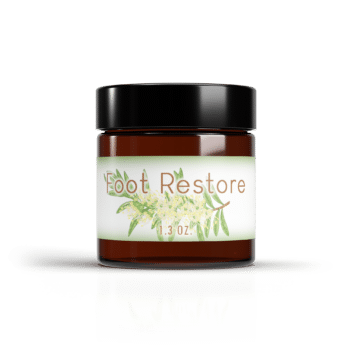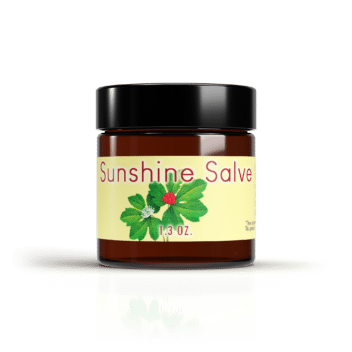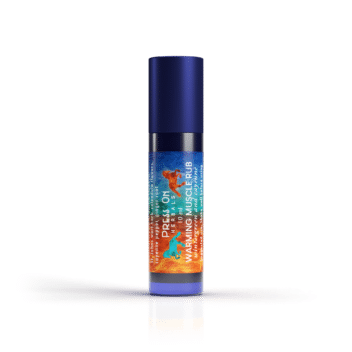
Olive Oil in Herbal Medicine
Olive Oil in Herbal Medicine
Olive oil’s benefits extend far beyond culinary uses, touching various aspects of health and wellness. Its unique composition makes it an invaluable resource in promoting overall well-being.
Rich in Healthy Fats
One of the primary benefits of olive oil is its high content of monounsaturated fats, particularly oleic acid. These healthy fats are known to reduce inflammation and have been linked to a reduced risk of heart disease. Unlike saturated fats, monounsaturated fats help maintain healthy cholesterol levels, which is crucial for cardiovascular health.
Monounsaturated fats in olive oil are also associated with weight management, as they can provide a feeling of fullness and reduce the urge to overeat. This can be particularly beneficial for those looking to manage their weight without compromising on flavor or nutrition.
Moreover, oleic acid in olive oil has been studied for its potential to improve insulin sensitivity, making it a valuable addition to the diet of individuals managing diabetes. By supporting stable blood sugar levels, olive oil contributes to a balanced and healthful dietary approach.
Packed with Antioxidants
Olive oil is rich in antioxidants, including vitamin E and polyphenols. These antioxidants help protect the body from oxidative stress, which is a major contributor to chronic diseases. By neutralizing free radicals, antioxidants in olive oil can reduce the risk of cancer and other age-related conditions.
The polyphenols found in olive oil, such as hydroxytyrosol and oleuropein, have been shown to exhibit anti-cancer properties. These compounds work by inhibiting the growth of cancer cells and preventing the spread of tumors, offering a natural defense against the disease.
In addition to their anti-cancer effects, the antioxidants in olive oil also play a role in enhancing skin health. By combating oxidative stress, they help maintain youthful, radiant skin and reduce the appearance of fine lines and wrinkles.
Anti-Inflammatory Properties
Inflammation is a common factor in many chronic diseases, such as arthritis and cardiovascular conditions. Olive oil contains oleocanthal, a compound that has been shown to mimic the effects of ibuprofen, providing natural pain relief without the side effects associated with pharmaceutical drugs.
Oleocanthal’s anti-inflammatory action extends beyond pain relief, as it also helps protect the body from inflammatory diseases over the long term. By reducing chronic inflammation, olive oil supports joint health and mobility, making it a valuable ally for those suffering from arthritis.
Furthermore, the regular consumption of olive oil can help lower levels of inflammatory markers in the blood, contributing to a reduced risk of developing conditions such as atherosclerosis and heart disease.
Supports Brain Health
The consumption of olive oil has been linked to improved cognitive function and a reduced risk of neurodegenerative diseases like Alzheimer’s. The healthy fats and antioxidants in olive oil help protect the brain from damage and promote overall brain health.
Studies have shown that olive oil can enhance memory and learning capabilities, which are crucial for maintaining cognitive health as we age. By supporting neural function, olive oil plays a significant role in preserving mental clarity and sharpness.
In addition to its cognitive benefits, olive oil may also help alleviate symptoms of depression and anxiety. Its anti-inflammatory properties and ability to support neurotransmitter balance contribute to improved mood and emotional well-being.
Olive Oil in Herbal Medicine
Olive oil’s application in herbal medicine is as varied as it is historical. Its versatile properties make it a cornerstone in natural health practices.
Traditional Uses
Olive oil has been used in herbal medicine for thousands of years. Ancient civilizations, such as the Greeks and Egyptians, valued olive oil for its healing properties. It was commonly used in ointments, salves, and balms to treat wounds, skin conditions, and infections.
In ancient Greek culture, olive oil was revered as a symbol of peace and prosperity, often used in religious ceremonies and rituals. Its application in medicinal practices was seen as a gift from the gods, with healers using it to promote health and longevity.
The Egyptians, on the other hand, utilized olive oil in the mummification process, recognizing its preservative properties. This speaks to the oil’s antimicrobial effects, which continue to be valued in modern herbal medicine.
Modern Applications
Today, olive oil remains a popular choice in herbal medicine. It is often used as a carrier oil in essential oil blends, allowing for safe and effective topical application. Olive oil’s emollient properties make it ideal for skin care, helping to soothe dry and irritated skin.
In aromatherapy, olive oil acts as a neutral base that enhances the absorption of essential oils through the skin, maximizing their therapeutic benefits. This makes it a preferred choice for massages and topical treatments.
Moreover, olive oil’s moisturizing properties are beneficial for managing skin conditions such as eczema and psoriasis, providing relief from itching and inflammation. Its gentle nature ensures suitability for all skin types, including sensitive skin.
Herbal Remedies
Olive oil can be combined with various herbs to enhance its medicinal properties. For instance, infusing olive oil with garlic can boost its antibacterial and antiviral effects, making it an excellent remedy for colds and flu. Similarly, combining olive oil with rosemary can improve circulation and relieve muscle pain.
Other herbal infusions, such as those with lavender or chamomile, can promote relaxation and stress relief, making olive oil an effective component in remedies for anxiety and insomnia. These combinations leverage both the calming scent and therapeutic effects of the herbs.
Additionally, olive oil infused with calendula flowers can offer soothing relief for skin irritations and minor wounds, highlighting its versatility as a natural healing agent.
Olive Oil and Digestive Health
Olive oil is known for its positive effects on the digestive system. It can stimulate the production of digestive enzymes, promoting efficient digestion and nutrient absorption. Additionally, olive oil can help alleviate symptoms of constipation by acting as a natural laxative.
The consumption of olive oil can also aid in balancing gut flora, thanks to its antimicrobial properties. By supporting a healthy microbiome, olive oil contributes to improved digestive health and overall well-being.
Furthermore, olive oil’s ability to reduce inflammation in the digestive tract can be beneficial for individuals with conditions such as Crohn’s disease or irritable bowel syndrome (IBS), offering a natural approach to managing symptoms.
How to Incorporate Olive Oil into Your Health Routine
Integrating olive oil into your daily health regimen is both simple and rewarding, offering numerous benefits for both internal and external wellness.
Dietary Inclusion
Incorporating olive oil into your diet is one of the simplest ways to reap its health benefits. Use it as a salad dressing, drizzle it over cooked vegetables, or use it as a cooking oil for sautéing and roasting. Opt for extra virgin olive oil, as it retains more of its natural nutrients and flavor.
Experiment with different types of olive oil to discover new flavors and aromas, enhancing the culinary experience while benefiting from its health properties. From fruity to peppery, the variety of olive oils available can complement diverse dishes.
Using olive oil as a finishing touch on soups, pastas, or even freshly baked bread can elevate the dish’s taste while ensuring you receive its health benefits in every bite.
Topical Application
For skin health, apply olive oil directly to the skin or mix it with other natural ingredients like honey or aloe vera for added benefits. Olive oil can also be used as a natural moisturizer or as a soothing treatment for minor burns and insect bites.
Creating homemade scrubs or masks using olive oil can enhance skincare routines, offering a luxurious and nourishing experience. Olive oil’s ability to lock in moisture makes it ideal for dry skin, providing long-lasting hydration.
Moreover, olive oil can be used to treat hair and scalp conditions, such as dandruff or split ends, by providing essential nutrients and moisture. A warm olive oil treatment can revitalize hair, leaving it soft and shiny.
Herbal Infusions
Creating your own herbal infusions is a great way to customize olive oil’s benefits to suit your needs. Simply add dried herbs to a bottle of olive oil and let it sit for a few weeks to allow the flavors and medicinal properties to meld. Strain the oil before use, and enjoy your personalized herbal remedy.
Experiment with various herbs to tailor infusions for specific health concerns, such as energy-boosting blends with ginseng or calming mixtures with valerian root. The possibilities are endless, allowing for a personalized approach to wellness.
Herbal infusions can also be used in cooking, adding unique flavors and health benefits to dishes, making mealtime both delicious and nutritious.
Olive Oil Supplements
For those who may not enjoy the taste of olive oil or want a more convenient option, olive oil supplements are available. These capsules contain concentrated forms of olive oil, providing a quick and easy way to incorporate its benefits into your daily routine.
Supplements can be particularly beneficial for those with busy lifestyles, ensuring they receive the health benefits of olive oil without needing to alter their diet significantly. They offer a consistent and measurable dosage, making it easy to manage intake.
Olive oil supplements can also be combined with other nutritional supplements, such as omega-3s, to create a comprehensive approach to health and wellness.
Conclusion
Olive oil’s rich history in herbal medicine and its wide array of health benefits make it a valuable addition to any health regimen. Whether used as a dietary staple, a topical treatment, or in herbal infusions, olive oil offers a natural and effective way to support overall health and well-being. Embrace the power of olive oil and unlock its potential to enhance your health naturally.
By understanding and harnessing the diverse applications of olive oil, individuals can take proactive steps towards a healthier lifestyle. Its natural properties offer a safe and effective alternative to conventional treatments, aligning with holistic health practices.
Incorporating olive oil into daily life not only supports physical health but also contributes to mental and emotional well-being, making it a truly comprehensive addition to personal health routines.





